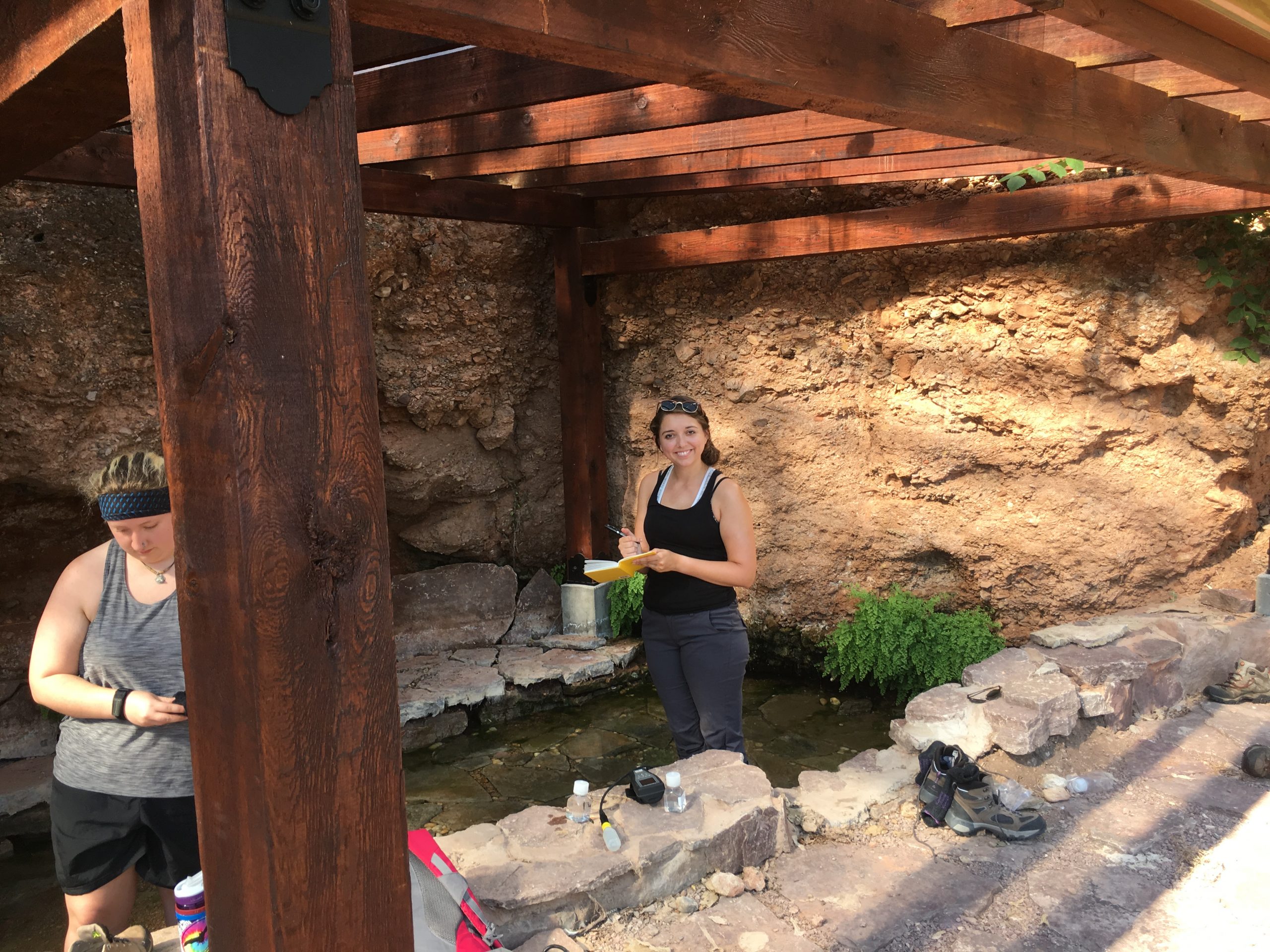“Geology is not just about rocks,” explained Gustavus Adolphus College senior geology and environmental studies double major Kenzie Perry. “I am not a rock person at all. I am captivated by the other side — the waterfalls, rivers, and any place where water is moving. Now, with more threats to water quality, understanding these processes is extremely important.”

Perry is combining these passions in her research and coursework at Gustavus. Focused on how groundwater moves through the earth, specifically in hot springs, Perry designed and proposed a novel project for her geology senior thesis that her professors approved last spring. While at first drawn to the hot springs in Yellowstone National Park, Perry turned to a geothermal map to uncover some new questions. It pointed her to her home state of South Dakota, and the hot springs in a small city near the Black Hills became the center of her project.
Over the summer, Perry, joined by Gustavus junior Madison Adams and geology and environmental science professor Laura Triplett, traveled to Hot Springs, SD. Meeting with landowners and camping over a three-day period, the trio took measurements and collected water samples from lakes, streams, and the springs.
Back on the Hill, Perry utilized the College’s inductively coupled plasma spectrometer to measure metal concentrations in the water. Her analysis of these results will determine the hydrological and chemical relationship between the hot springs and the groundwater from nearby rivers. Using this information, Perry will be able to provide crucial answers about water sources and quality for the owners and residents of the town.
“I was blown away the residents’ graciousness. I was a stranger showing up at their houses and asking to see their hot spring, so I was a definitely a little nervous heading out there. But they were all so kind and willing to help,” said Perry. “That’s why I want to make sure my research is good work, so I can return the favor and provide them with the necessary information about what is in their water and how it can be treated and preserved.”

In addition to her focus in South Dakota, Perry’s local research has also provided answers for the Saint Peter area. In collaboration with Triplett and senior Jake Westfield, she spent the summer studying the impact of agriculture practices on water quality. Monitoring the water components in the Seven Mile Creek Watershed, Perry and Westfield compared data with previous years to assess the impact of the positive changes local farmers have implemented in recent seasons. In December, Perry attended the American GeoPhysical Union Fall Meeting in New Orleans to present this research. With over 20,000 Earth and space scientists in attendance, the annual meeting is the largest geoscience conference in the world.
“It was exciting to be a part of something so big, to see all the potential for the future of research, and to be a part of the larger geoscience community,” Perry said. “I felt even more confident about my own research after I presented because of how many people were interested in what we were doing, even in a small watershed in south-central Minnesota.”
At the conference, Perry also made key connections with students and professors from top graduate programs around the country. Her plan is to complete her thesis this spring, graduate in May, and attend graduate school next fall, where she will pursue a master’s degree in geology with a focus in either water resource management or hydrology.
“It is very exciting to read through all of the opportunities and research options out there,” Perry said. “I would love to work for National Park Services or the Department of Natural Resources, but any job in the government or private sector that focuses on pollution or water control would be a dream.”
As she’s done throughout the course of her research as a Gustavus student, Perry hopes to be able to take everything she has learned about earth science and apply it through a meaningful career in hydrology.
“It would be devastating to see our water degraded to a point of no return. But hopefully, by studying these processes and utilizing our research, I can help combat problems of water scarcity and degradation so that we can continue to have clean and abundant resources.”

Leave a Reply
You must be logged in to post a comment.